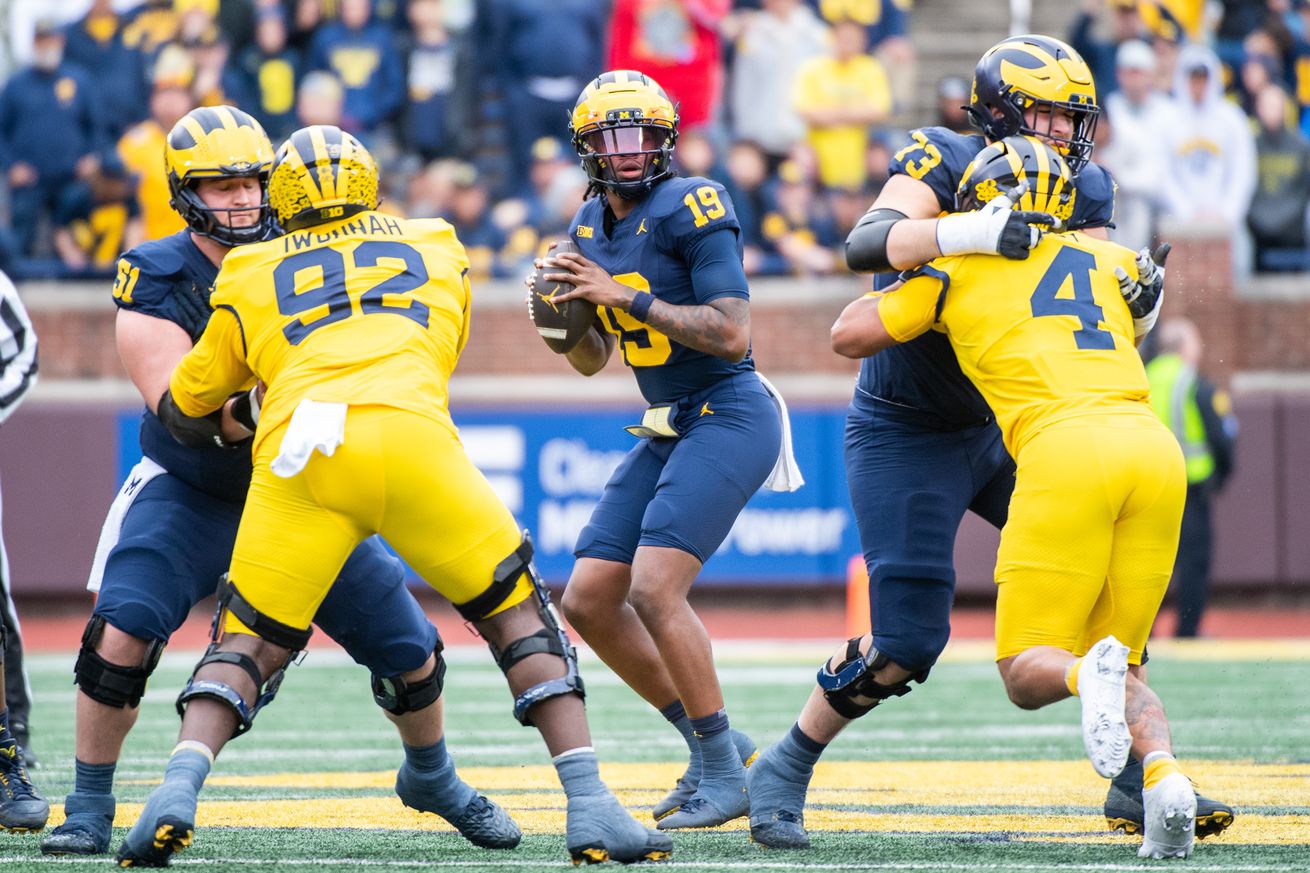
2024 was an expected off year for Michigan, but the goal is to get back to Big Ten and College Football Playoff contention quickly. Was enough done this offseason to make that happen?
Most Michigan Wolverines fans would have traded any sort of future down period for the 2023 national championship, and those who made that claim had to come to terms with that reality really quickly. After a 4-1 start last season, the wheels fell off, leading to a 5-5 record in mid-November. Obviously, the season concluded with plenty of reasons for optimism, but 2024 was certainly a big decline from the prior three years.
The task now becomes getting back to that previous level. While true national championship contention is probably a few years away (at least), Michigan should absolutely being aiming for a return to the College Football Playoff. Most preseason rankings have the Wolverines in the back half of the top 25, which suggests the opportunity will be there. Did Sherrone Moore do enough to make that a reality, though? Time will soon tell.
Two steps forward
If we assume that Wink Martindale and Michigan’s defense figured something out down the stretch (I maintain that we can point to the third quarter in Bloomington as the starting point), then at least one side of the ball is going to be a strength. Losing three elite linemen and some key pieces in the secondary will be tough to replace, but the backups’ performance against Alabama gives this unit a fairly high baseline.
I think Michigan did enough defensively through the portal to keep up a high level of defense. Maybe there is a bit of a drop-off without Mason Graham and Kenneth Grant, but additions like Damon Payne, Tre Williams, Caleb Anderson, and TJ and Tevis Metcalf should complement all of the returning pieces well enough to perform at a CFP level.
On the other side of the ball…tough to say. Bryce Underwood is the biggest acquisition anyone could ever make, with Andrew Babalola, Avery Gach, and Andrew Marsh all good gets as well, but more so for the future. Justice Haynes keeps running back a strength, and Donovan McCulley was arguably the team’s most important portal add. Mikey Keene was also a decent decision, though injury might prevent him from ever playing a meaningful snap.
To answer the question, however, no: Michigan did not do enough in the offseason on offense. The task feels nearly impossible, as no big receiver is going to come to Ann Arbor given the current state of the offense, and while adding a veteran tackle out of the portal would have been great, just about every team in the country is fighting over the few limited options. Moore did what he could, but on paper, the offensive personnel did not substantially improve this offseason.
What it takes
That being said, Michigan can still absolutely find itself as a contender come November. To me, it boils down to three factors. Offensively, it requires a step forward in quarterback/passing game play and also at offensive line. Even as a freshman, Underwood is likely a step up from whatever Moore put out there last season, though there is a ceiling with the wide receiving corps. If he can hit McCulley for some deep shots and move the sticks a bit with his legs, though, that immediately ticks up the offensive ceiling.
The line was a problem for most of last year, so getting some improvement up front is a huge deal too. Protecting the new Face of the Program is a must, though Underwood’s mobility could mitigate some shortcomings. Kalel Mullings excelled despite wavering run blocking, but it is unclear if Jordan Marshall and Hayes will do the same. Regardless, this offense absolutely relies on the line to lead the way, and that could be the difference between making the playoff or not.
Defensively, the one thing Michigan cannot afford is another slow start. Martindale really struggled to begin his time in Ann Arbor, and this fall he has the benefit of a year of seasoning. Still, the personnel will look different, and early games against Oklahoma, Nebraska, Wisconsin, and USC could all be tipping points if the defense wobbles early on.
The big takeaway for Martindale was learning when he could trust his individual players to do certain things and where he had to deviate from his NFL tendencies. This roster no longer has two first-round defensive tackles, and even with improvements from Zeke Berry and Jyaire Hill to close the year, both players have a bit to prove at corner. The quicker Martindale adapts, the quicker this defense will get to its ceiling, which is quite high. Another bumpy first half could bring big problems, though.
If Underwood is at least passable right away, the offensive line is better than last year, and the defense continues where it left off despite some new names in the lineup, then Michigan is going to get the nine to 10 wins needed to be in CFP contention. If that sounds somewhat simple, that is because this team actually had a lot of positives, despite how frustrating 2024 was at times. These three things are big assumptions, but the path is there for a return to national interest.
That being said, I still feel lukewarm on if Moore truly did enough this offseason. At quarterback, absolutely, and defensively, I like a lot of the newcomers. Still, McCulley and the freshmen are not enough to feel super happy about the pass catchers (now without Colston Loveland), and the offensive line still seems 50-50 between actually improving or not. The transfer portal sometimes acts more mystical than legitimate, but if Michigan falls short because of the same old issues, there is only one area to place the blame.
